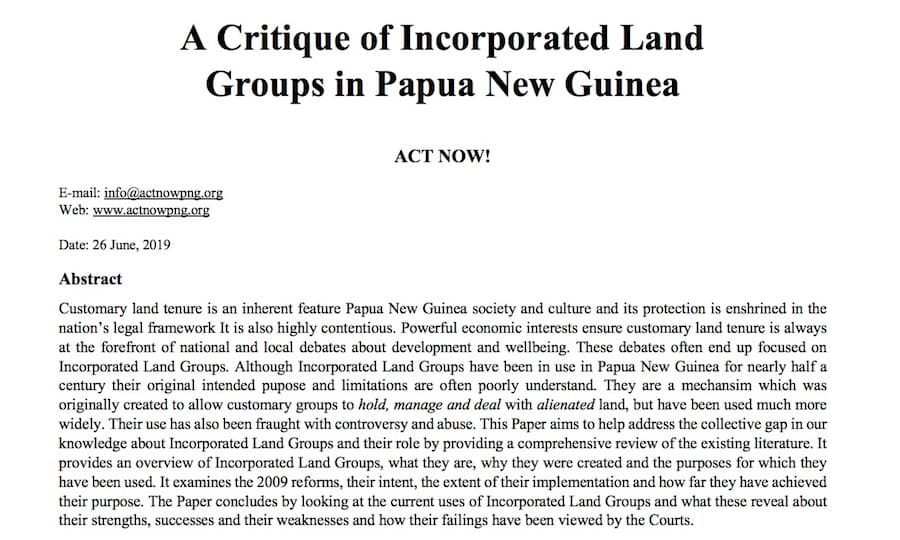New Report: A Critique of Incorporated Land Groups

Customary land tenure is an inherent feature Papua New Guinea society and culture and its protection is enshrined in the nation’s legal framework. It is also highly contentious. Powerful economic interests ensure customary land tenure is always at the forefront of national and local debates about development and wellbeing.
These debates often end up focused on Incorporated Land Groups. But, although ILGs have been in use in Papua New Guinea for nearly half a century their original intended purpose and limitations are often poorly understand.
ILGs were originally created to allow customary groups to hold, manage and deal with alienated land, but have been used much more widely. These uses have been fraught with controversy and abuse.
A Critique of Incorporated Land Groups aims to help address the collective gap in our knowledge about Incorporated Land Groups and their role by providing a comprehensive review of the existing literature.
The Paper provides an overview of Incorporated Land Groups, what they are, why they were created and the purposes for which they have been used. It examines the 2009 reforms, their intent, the extent of their implementation and how far they have achieved their purpose. The Paper concludes by looking at the current uses of Incorporated Land Groups and what these reveal about their strengths, successes and their weaknesses and how their failings have been viewed by the Courts.
